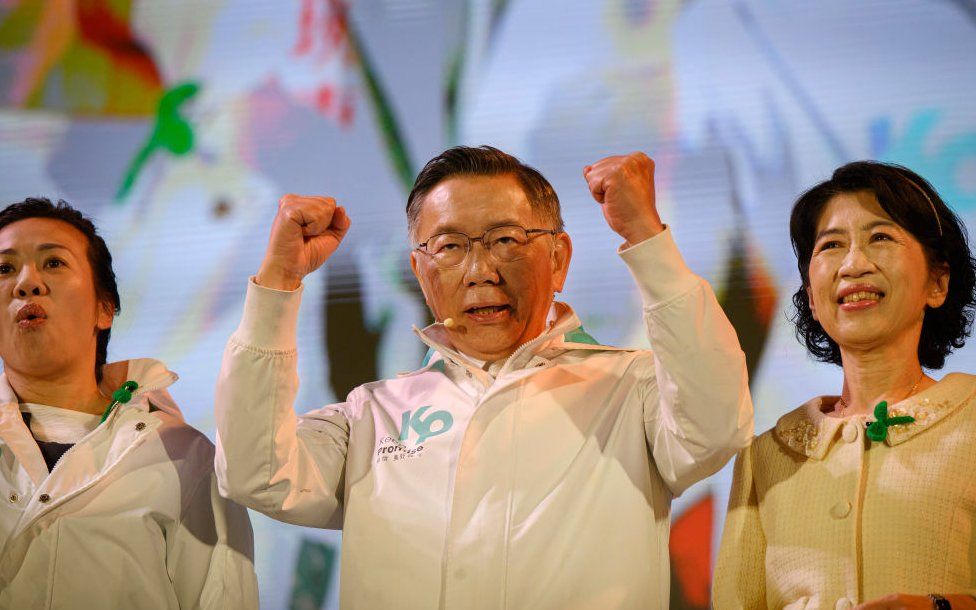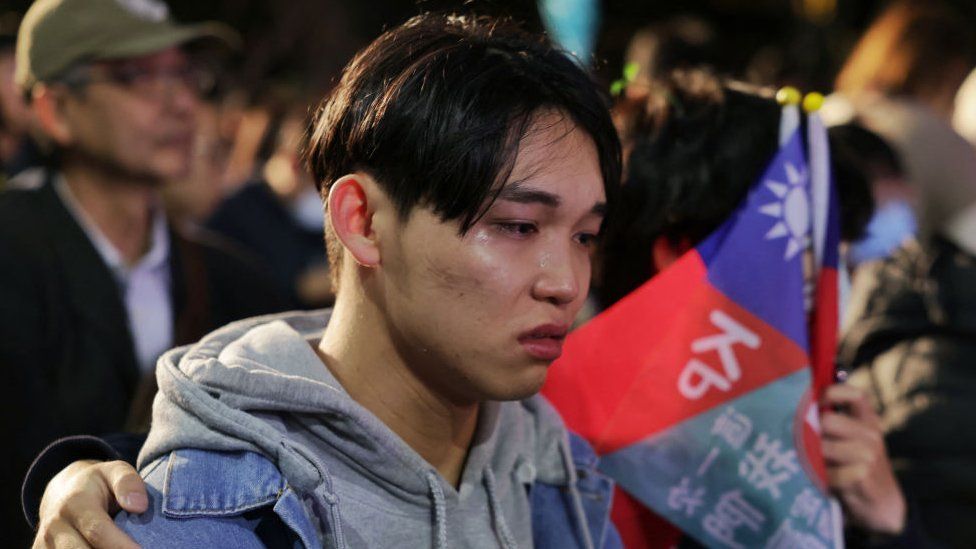Following the intense Taiwan presidential election, where William Lai emerged victorious, an unexpected winner, maverick politician Ko Wen-je, has made a significant impact. In a surprising turn of events on Saturday, over a quarter of Taiwan’s voters, including a substantial number of young people, threw their support behind Ko Wen-je in the presidential poll.

Moreover, Ko’s fledgling Taiwan’s People Party (TPP) secured eight seats in the legislative elections, potentially holding sway in a parliament without a clear majority. Although Ko himself finished last in the presidential race, political observers argue that he has fundamentally altered Taiwan’s political landscape, traditionally dominated by the Kuomintang (KMT) and William Lai’s Democratic Progressive Party (DPP).
“It’s now no longer a two-horse race, it’s a three-horse race,” remarked Wen-ti Sung, a political scientist and non-resident fellow with the Atlantic Council’s Global China Hub. Ko, a seasoned politician and former mayor of Taipei, campaigned on a platform of breaking away from the traditional blue (KMT) and green (DPP) divide, positioning himself as a centrist on cross-strait relations.
The TPP’s modest gains signify a growing demand for a more diverse political landscape, particularly driven by impassioned young Taiwanese. Some young voters expressed dissatisfaction with the election results, alleging electoral fraud online. Ko’s appeal lies not only in his straightforward approach but also in his ability to connect with the youth, occasionally breaking into rap. However, he has faced criticism for comments perceived as sexist and homophobic.
The younger generation, grappling with longstanding economic challenges such as low wages and expensive housing, seeks alternatives beyond the DPP-KMT cycle that has dominated Taiwan’s political scene since 2000. Lev Nachman, a political scientist at the National Chengchi University, notes that while this demand for alternatives may not shatter the political system, it pressures other parties to broaden their appeal.

The TPP, leveraging voter discontent and Ko’s popularity, now stands at an advantage. To sustain this momentum, it must strengthen its grassroots teams and articulate a compelling vision. Ian Chong, a non-resident fellow with Carnegie China, underscores the importance of sustaining the TPP beyond Ko’s personality, emphasizing the need for enduring ideas to attract supporters.
TPP supporter Harrison Wu acknowledges the party’s dependence on Ko but emphasizes the necessity of developing successors. Ko, recognizing the challenges ahead, pledged to continue the fight and build on the party’s achievements. As he conceded to Lai, Ko expressed determination, stating, “If we diligently continue, in the next four years, I believe we will win even more recognition, and gather even more power. Next time we will govern, and definitely win back this country.” Source – BBC









